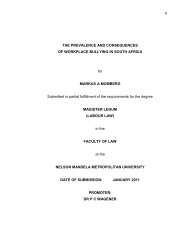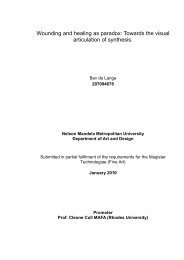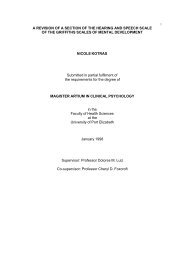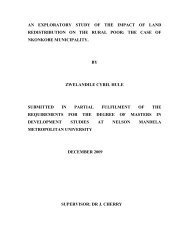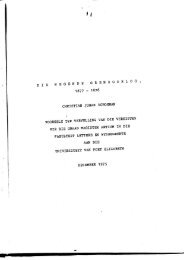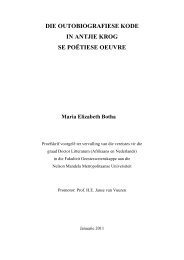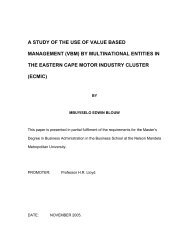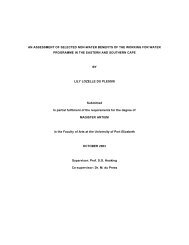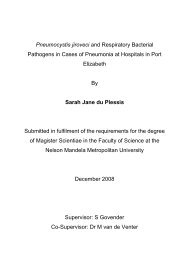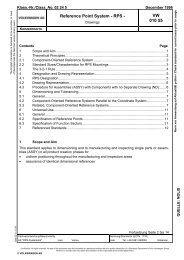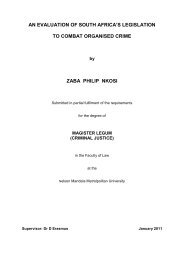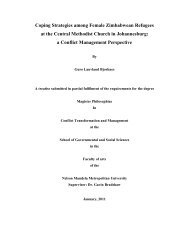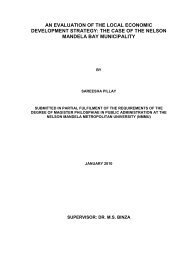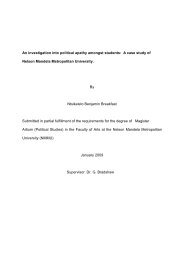Elaine Browne.pdf - Nelson Mandela Metropolitan University
Elaine Browne.pdf - Nelson Mandela Metropolitan University
Elaine Browne.pdf - Nelson Mandela Metropolitan University
Create successful ePaper yourself
Turn your PDF publications into a flip-book with our unique Google optimized e-Paper software.
others, we are constantly re‐evaluating and recreating our identities. This we also do in relation<br />
to our heritage and ambitions (Joseph & Van Niekerk 2007, 488).<br />
For Weeks (1990, 88), the notion of ‘belonging’ and sharing of the same values, is central to<br />
one’s social, personal and subsequently, professional identity. Identity is “about what you have<br />
in common with some people and what differentiates you from others” (Weeks 1990, 88).<br />
Tierney (1991, 37) also believes that issues of similarity or difference enable a person to define<br />
his or her identity. People distinguish themselves from others by defining the category within<br />
which they exist. Both Tierney and Weeks thus hold that, in order to define personal and social<br />
identities, people will engage in projects which focus on issues related to similarities and<br />
differences, values and categories.<br />
A teacher’s professional identity is also informed by his or her commitment to the education<br />
profession. In this regard, Shulman (2004, 313) asserts that if teachers exhibit the following<br />
characteristics, they should be able to adopt professional identities as ‘competent’ teachers’:<br />
Firstly, they will have a solid knowledge base, in other words, the knowledge and skills that will<br />
enable effective teaching and learning. Secondly, they will be committed to their job. This<br />
means that they will be passionate and motivated. They will also be resilient, with the ability to<br />
persevere despite difficulties and restraints. Thirdly, they will adopt the status of a professional<br />
person. This person will regard a teacher’s role in society as respectful and essential for<br />
society’s survival. Lastly, they will assume formal institutional roles, in other words, those<br />
21



